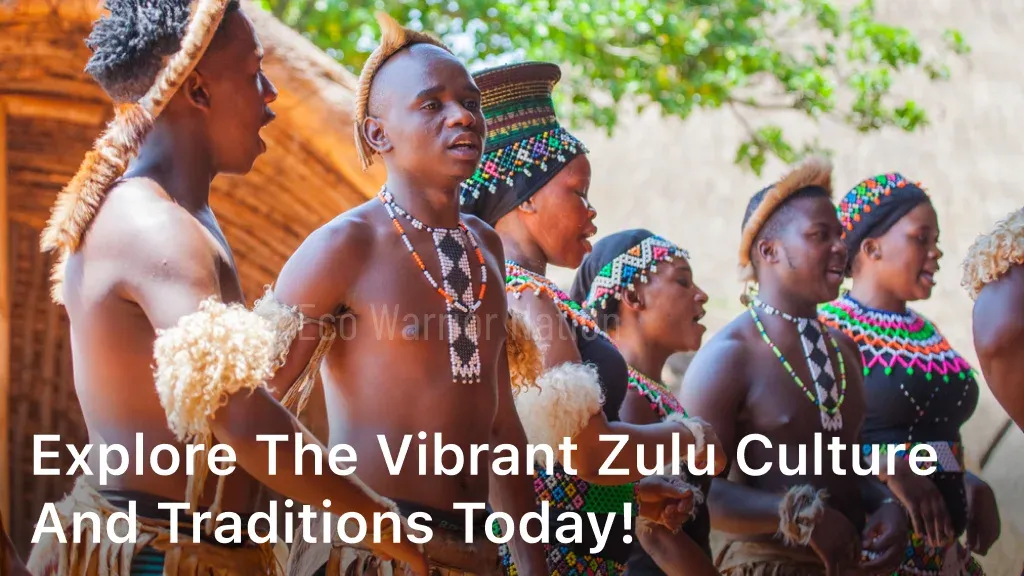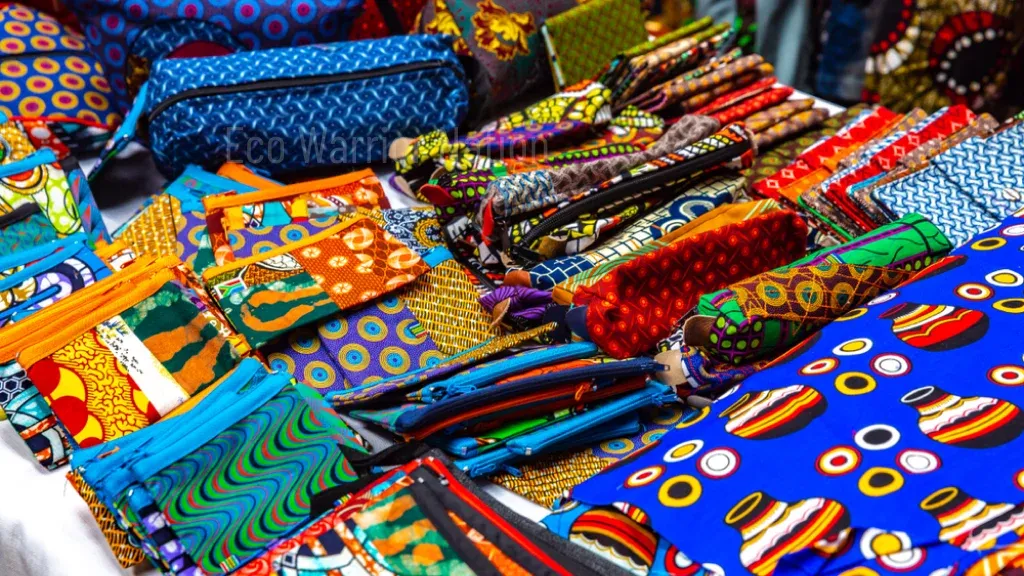Explore the Vibrant Zulu Culture and Traditions Today!

ecowarriornation.com. Explore the Vibrant Zulu Culture and Traditions Today! Dive into the vibrant world of Zulu culture and traditions with us! Join our journey exploring ancient customs, ceremonies, and rich heritage.
Welcome to our journey through the fascinating world of Zulu culture and traditions. As we delve into the ancient customs and ceremonies that have shaped the Zulu people, we will discover a rich heritage that continues to thrive today.
The Zulu culture is a vibrant and colorful tapestry of unique customs and traditions. From their language to their music, dance, and clothing, every aspect of their culture is infused with a deep sense of pride and respect for their traditions. As we learn about their way of life, we will gain a deeper appreciation for the beauty and complexity of Zulu culture.
Zulu Culture and Traditions
Key Takeaways
- Zulu culture and traditions are rich and diverse.
- Ancient customs and ceremonies have shaped the Zulu people.
- The Zulu culture is infused with a deep sense of pride and respect for their traditions.
- Zulu music, dance, art, and traditional clothing are unique and significant elements of their culture.
- Ceremonies and rituals play an essential role in the Zulu community.
The History and Origins of Zulu Culture
As we explore the vibrant world of Zulu culture and traditions, it’s essential to understand the historical roots of this rich heritage. Zulu culture originated in the early days of the Zulu kingdom, which was founded in the early 17th century by King Shaka.
The Zulu kingdom was located in what is now known as South Africa, and it grew to become one of the most powerful and influential kingdoms in the region.
King Shaka was a significant figure in the development of Zulu culture and traditions. He implemented a series of military reforms that allowed the Zulu army to become a formidable force on the battlefield, expanding the kingdom’s borders and influence.
His reign also marked the beginning of a new era of cultural and artistic expression, as the Zulu people developed unique forms of music, dance, and art.
Zulu tradition is steeped in ancient customs that have been passed down through generations. Many of these customs are rooted in the history and experiences of the Zulu people.
For example, the traditional clothing worn by the Zulu people is a reflection of their warrior heritage. The distinctive headdress and shields worn by Zulu warriors were adapted from those used in battle.

| Zulu Culture | Origins | History | Ancient Customs |
|---|---|---|---|
| Unique language | 17th century Zulu kingdom | King Shaka’s reign | Adapted dress and weaponry |
| Forms of music | South Africa | Zulu army’s military reforms | Herding practices |
| Unique dance | Zulu culture | Cultural and artistic expression | Spiritual practices |
The Zulu people have a rich history that has been shaped by significant events and influential figures. In the 19th century, the Zulu kingdom was embroiled in conflict with British colonial forces.
In 1879, the Battle of Isandlwana saw the Zulu army defeat a much larger British force, but the British ultimately prevailed and annexed the Zulu kingdom. This event marked the end of an era for Zulu culture, as the British imposed their own customs and traditions on the region.
Despite the challenges faced by the Zulu people throughout history, their culture has endured and thrived. Today, Zulu culture is celebrated and cherished by millions around the world, and the traditions and customs of this vibrant culture continue to evolve and inspire.
Key Elements of Zulu Culture
When it comes to Zulu culture, there are several key elements that define their traditions and way of life. From the unique language to the vibrant music and dance, the Zulu people take great pride in their diverse cultural heritage. Let’s take a closer look at the essential elements that make up Zulu culture.
The Zulu Language
The Zulu language is one of the critical elements of their culture. The language is spoken by over 11 million people in South Africa alone and is the most widely spoken language in the country. The distinct clicking sounds that are typical of the Zulu language are one of the most recognizable features of the language.
Zulu Music and Dance
Music and dance are an integral part of Zulu culture. The traditional music is made up of a combination of vocals, drums, and percussive instruments. The dance is vibrant and energetic, with a focus on rhythmic movements and synchronized steps. The Zulu people believe that music and dance are a way to connect with their ancestors and celebrate their rich cultural heritage.
Zulu Art and Crafts
Zulu art is known for its intricate beadwork and brightly colored patterns. The art is often crafted by women and is a way to showcase their creativity and skill. From the clothing to the jewelry, the intricate details of Zulu art celebrate the beauty and uniqueness of their culture.
Traditional Clothing
Zulu traditional clothing is a reflection of the culture’s rich and diverse heritage. The clothing is often brightly colored and adorned with intricate beading and patterns. The clothing varies by gender, with women wearing colorful skirts and beaded accessories, while men often wear animal skins.
Ceremonies and Rituals
Ceremonies and rituals form an essential part of Zulu culture. These events are often centered around ancestral worship and are a way to connect with their ancestors and celebrate their traditions.
Some of the most significant ceremonies include the Umhlanga (Reed Dance) ceremony and the Ukusoma (coming of age) ceremony, which celebrate important milestones in a person’s life.
Zulu Traditional Practices and Beliefs
As we delve deeper into Zulu traditions, we cannot ignore the significant role played by traditional practices and beliefs that continue to shape their culture today. These practices and beliefs are rooted in the Zulu people’s deeply spiritual and ancestral connections, and they form an integral part of their identity.
Ancestral worship is one of the most significant traditional practices in Zulu culture. The Zulus believe that their ancestors’ spirits play an active role in their lives and can influence their fortunes. They, therefore, honor their ancestors through various rituals and ceremonies, seeking their guidance and blessings.
Divination, or the process of seeking an understanding of the future or the unknown, is also an important aspect of Zulu culture. Traditional healers, known as isangoma, use divination to diagnose illnesses, interpret dreams, and offer advice and guidance to their clients.
Zulu traditional practices also include various healing practices that use natural remedies to cure illnesses and promote well-being. For example, umuthi, or African herbal medicine, is widely used in Zulu culture to treat a range of ailments.
Belief in the power of ancestors and spirits is deeply ingrained in Zulu culture, and this is reflected in their religious practices. Christianity and Islam have also been introduced to the Zulu people, but traditional practices and beliefs remain an integral part of their culture.
Overall, traditional practices and beliefs continue to play a vital role in shaping Zulu culture. They represent a living link to their ancestral past, providing a sense of continuity and identity that helps the Zulu people navigate their lives.
Zulu Cultural Festivals and Celebrations
Zulu culture is rich in colorful festivals and celebrations that are an integral part of their way of life. These cultural events are a testament to the pride and dedication the Zulu people have for their traditions.
The Reed Dance Ceremony
One of the most famous Zulu cultural festivals is the Reed Dance Ceremony, also known as Umkhosi Womhlanga. This annual event takes place in August or September and involves thousands of Zulu maidens traveling to the royal palace in Nongoma to present reeds to the Zulu King.
The ceremony is a celebration of purity, and the girls dress in traditional costumes, donning intricate beadwork and headdresses. It is an impressive display of Zulu culture and is open to tourists who want to witness the festivities.
Shaka’s Day Celebrations
Shaka’s Day is another important celebration in Zulu culture, commemorating the life and legacy of the Zulu King, Shaka. The event takes place on September 24th each year and includes traditional dances, music, and a variety of cultural activities. The day is a reminder of the significant contributions Shaka made to Zulu culture and history.
Isandlwana Battle Reenactment
The Isandlwana Battle Reenactment is another exciting event that takes place in January each year. The battle was fought on January 22nd, 1879, between the British and the Zulu armies, and resulted in the Zulu victory.
The reenactment is a tribute to the bravery and valor of the Zulu warriors and includes traditional Zulu dances, music, and other cultural activities. It is an excellent opportunity to witness the rich history and traditions of the Zulu people.
The Ukweshwama Ceremony
The Ukweshwama Ceremony is an ancient Zulu celebration that involves the slaughtering of a bull and the purification of the Zulu king. The ceremony is held in December or January each year and is a significant cultural event. The Zulu people believe that the ceremony brings health, fertility, and prosperity to the community.
Zulu culture is full of exciting and colorful festivals and celebrations that reflect the pride and dedication the Zulu people have for their traditions.
These events provide a fascinating insight into the rich heritage and customs that make up Zulu culture, and they are an excellent opportunity for tourists to experience the vibrancy of this unique community.
Conclusion
Our journey through the vibrant Zulu culture and traditions has been an enriching experience. We have gained a deeper understanding of their ancient customs and ceremonies, which have been passed down from generation to generation.
The Importance of Cultural Heritage
As we explored the key elements of Zulu culture, we saw how their traditions have played a significant role in shaping their identity and sense of belonging. It is crucial to honor and preserve cultural heritage as it provides a sense of continuity and connection to our past.
Celebrating Diversity
The beauty of cultural heritage lies in its diversity, and the Zulu culture is a prime example of this. By celebrating and respecting the traditions of other cultures, we can broaden our horizons and gain a more profound appreciation of the world we live in.
The Enduring Legacy of Zulu Culture
The Zulu people have a rich and vibrant culture that continues to thrive today. Their customs and ceremonies have been preserved through centuries of hardship and change, and they continue to pass them down to future generations. As we conclude our journey through Zulu culture, let us appreciate and honor their enduring legacy.
FAQ
What are some of the key elements of Zulu culture?
The key elements of Zulu culture include their unique language, music, dance, art, and traditional clothing. Ceremonies and rituals also play a significant role in the Zulu community.
How did Zulu culture originate?
Zulu culture originated in the early days of the Zulu kingdom. The culture has been shaped by significant historical events and influential figures throughout the centuries.
What are some traditional practices and beliefs in Zulu culture?
Zulu culture encompasses various traditional practices and beliefs such as ancestral worship, divination, and healing practices. These spiritual aspects are deeply rooted in their cultural heritage.
What are some important Zulu cultural festivals and celebrations?
Zulu culture is rich in festivals and celebrations. Some of the significant ones include the Reed Dance ceremony and Shaka’s Day celebrations, which showcase the vibrant and colorful traditions of the Zulu people.
